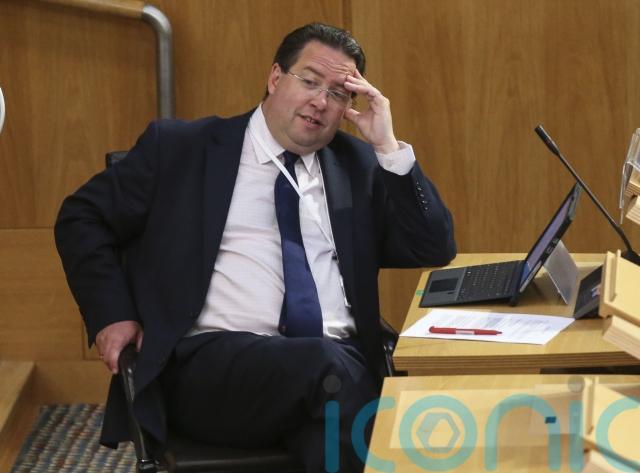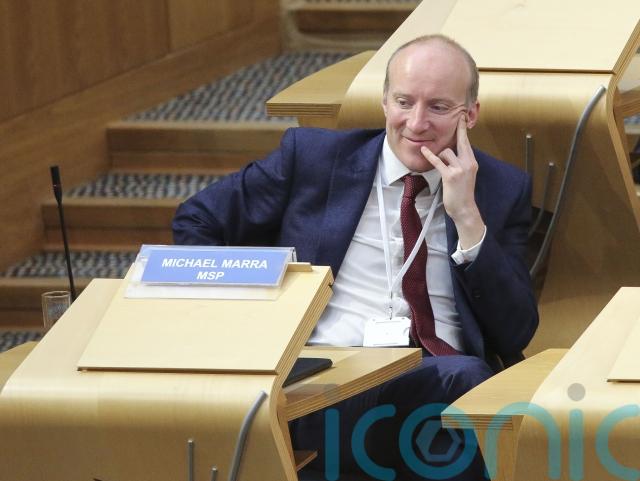
The Scottish Government aims to reduce the public sector workforce by 0.5% each year for the rest of the decade, the Finance Secretary has said.
Announcing the Government’s medium-term financial strategy, Shona Robison said taking no action would result in a near-£5 billion budget black hole by 2030.
If left untreated, Ms Robison told MSPs on Wednesday, the gap between funding and day-to-day spending would top £2.6 billion, while the capital deficit would grow to £2.1 billion.
One of the key drivers will be a reduction in the size of the public sector workforce.
A previous plan – which has since been abandoned – aimed to bring the level back to pre-Covid numbers, but Ms Robison outlined an average 0.5% reduction up to 2029-30.
“This will be achieved by reforming our public services as set out in our public service reform strategy, and through natural attrition and recruitment controls,” she said.
“By taking this action, we will protect valuable frontline services, and continue to offer a progressive pay policy which recognises that our public sector workforce is our most valuable asset.”
Ms Robison hinted that Social Security Scotland could be targeted for potential efficiencies, pledging to continue to “process and deliver benefits with dignity, fairness and respect – while driving important efficiency savings”.
NHS boards have already been asked to come up with 3% savings annually.
The savings are hoped to cover the £2.6 billion deficit by the end of the decade.
The strategy published on Wednesday was made up of three pillars; public spending, economic growth and taxation.
On economic growth, the Government will aim to increase business activity and thereby increase the tax base – though there was no concrete proposal for achieving these goals.
We have published our update on the Scottish Government’s Medium-Term Financial Strategy. You can find it here: https://t.co/I4om0IF1SR
A quick thread on some of the headline messages below 🧵 1/4 pic.twitter.com/wjVu0dVul5
— Scottish Fiscal Commission (@scotfisccomm) June 25, 2025
On taxation, Ms Robison hinted at a potential wealth tax, with the Government committing to the publication of a literature review on the measure.
The Government will also study the sustainability of the current tax regime in Scotland – with income tax slated to bring in £616 million this year – with a view to seeking further devolution, according to a document released alongside the plan on Wednesday.
Scottish Conservative finance spokesman Craig Hoy said: “The last medium-term financial strategy was over two years ago – last year’s was binned and this year’s was delayed.
“By slipping out this year’s strategy just before recess, we have no time to properly scrutinise this plan.
“But what we do know is that without radical action on public sector reform, on health and on labour force trends, Scots face substantially higher taxes or a state that does less.
“But the projected £5 billion fiscal gap by the end of the decade is not Westminster’s fault or responsibility, it is the SNP’s.”

Mr Hoy went on to claim the workforce reduction target “lacks ambition and detail”.
Labour finance spokesman Michael Marra pointed to the £9.1 billion extra coming to the Scottish Government in the coming years as a result of UK Government decisions.
“Today is the day years of gross mismanagement of the public finances by SNP ministers caught up with them – and the price is being paid by ordinary Scots,” he said.
“Let’s be crystal clear, by no definition other than the SNP’s can the budget they receive be described as austerity.
“The reason this Government is making cuts is because they have spectacularly mismanaged Scotland’s budget.
“It’s SNP ministers who have created a structural deficit of a staggering £2.6 billion – that’s a result of choices that you made.”
Ms Robison intends to publish a Scottish spending review alongside the draft budget in December, which will lay out spending pledges for the coming years.
The Scottish Fiscal Commission (SFC) – Scotland’s independent economic forecasting body – updated its assumptions in light of the Chancellor’s spending review and it has now urged the Scottish Government to take “concrete action” in the December document.

“Now that we have the detail on funding following the UK spending review earlier this month, the Scottish Government has the information it needs to complete its own spending review,” SFC chairman Professor Graeme Roy said.
“With the Scottish Government’s medium-term financial strategy highlighting a ‘fiscal gap’ between spending and funding, it is vital that this review carefully assesses the priorities across all areas of their spending.
“The Government have today set out their broad intention on how they intend to manage some of these fiscal pressures. But with growing commitments on public sector pay and social security, alongside longer term pressures from an ageing population and climate change, it is important that these ambitions are turned into concrete action.”
David Phillips, associate director of the Institute for Fiscal Studies (IFS), said the tax assumptions which informed the plan were “optimistic”, meaning the total day-to-day spending gap by the end of the decade could be “closer to £3.5 billion”.
“The Scottish Government cannot borrow to plug these gaps: some combination of measures to curb spending and boost revenues are required,” he added.
STUC general secretary Roz Foyer said the plan would leave more than 10,000 workers “on the scrapheap” over the next five years.
Subscribe or register today to discover more from DonegalLive.ie
Buy the e-paper of the Donegal Democrat, Donegal People's Press, Donegal Post and Inish Times here for instant access to Donegal's premier news titles.
Keep up with the latest news from Donegal with our daily newsletter featuring the most important stories of the day delivered to your inbox every evening at 5pm.